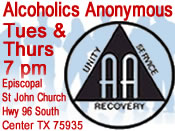April 18, 2019 - This past weekend the northern part of Senate District 3 was hit hard by tornadoes, resulting in the loss of lives, severe injuries and property. My office is working closely with these communities to ensure they are receiving the aid they need to help with their recovery and rebuilding. Our thoughts and prayers are with all who were affected by this disaster and the families who lost loved ones.
Here are five things happening at your Capitol this week:
1. Property Tax Relief
This week, the Senate approved Senate Bill 2 which would cap property tax revenue growth for counties, cities and special taxing districts at 3.5 percent. School districts would be capped at 2.5 percent a year, while receiving additional funding through other school finance legislation. This rate could be exceeded if an election is held and voters approve of the increase. Only revenue generated on existing properties, not new construction, would count toward the threshold. Currently, local governments could increase property tax revenue up to 8 percent without an election. Only revenue generated on existing properties, not new construction, would count toward the threshold.
2. Powdered Alcohol
Powdered alcohol has become a contentious topic in the Legislature with bills being filed for both sides of the issue. Powdered alcohol, which usually has an approximately 6.5 percent alcohol content, can be added to any liquid to make an alcoholic beverage. Under current law, anyone who wishes to make it must get a Texas Alcoholic Beverage Commission (TABC) permit. While there have been permits granted by TABC, but no powdered alcohol is currently distributed in the state.
Senate Bill 455 was recently heard in committee and would define powdered alcohol under the Alcoholic Beverage Code, exempting it from laws banning the sale of the product and allowing it to be taxed. House Bill 1610 was recently heard in House committee and would ban the product from Texas overall.
3. Tax Payer Lobbyist
The Texas Senate recently passed Senate Bill 29, also known as the taxpayer lobbyist bill. This legislation would prevent political subdivisions, such as cities and counties, from paying an individual or group to lobby on their behalf. Officers, employees, and elected officials of political subdivisions would still be allowed to provide information to members of the legislature and appear before committees at the committee's or member's request.
This bill would prevent political subdivisions from joining or paying dues to any association or organization that directly or indirectly influences legislation, unless a majority of the governing body votes to approve membership. They may also join the association if it exists for the betterment of local government. The associations can not be directly involved in influencing legislation, or contributing money and services to a political campaign or endorsing a candidate.
4. Alert for Missing Adults
The majority of the ideas for bills passed in the Legislature have been brought to us by constituents who have personal experiences with different situations. House Bill 1769 was brought to the author by a mother whose daughter was killed after she disappeared and was assaulted by her boyfriend. Friends knew of previous abuse by the boyfriend and reported it, but nothing was able to be done in time to save the daughter
This bill would allow officials to issue an alert for any missing adult who is believed to be in imminent danger, or whose disappearance is believed to be involuntary. This alert would be similar to a silver alert, which informs the public of missing senior citizens with documented mental condition and amber alerts, which informs the public about a child abduction.
5. Feral Hogs
Texas is currently home to one of the largest feral hog populations in the United States with an estimated 2-3 million hogs in the state, and a large part of that population being in East Texas. They can cause millions of dollars worth of damage on the land of farmers and property owners, as well as disrupt the natural patterns of other animals. Previous laws have been passed to allow a landowner to kill a feral hog, without a hunting license, if they are destroying their property at that time.
In an attempt to further address this issue, Senate Bill 317 recently passed the Senate and will allow a hog to be killed at anytime, whether they are destroying property at the time they are killed or not, without a hunting license. The hope of this provision is to enable landowners to further protect their property from damage.








